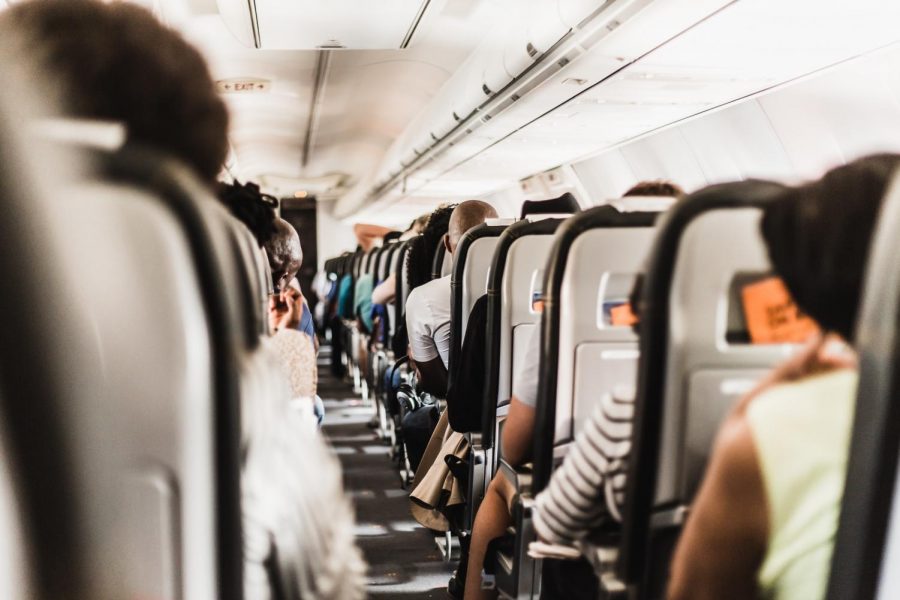Part 4: Concerns Over Air Travel
December 17, 2020
Despite not choosing to travel over Christmas break, O’Connor flew on a plane in the early fall to visit a college, adhering to her statement that some travel is necessary. In her case, it was to make a final decision on where she would attend school for the next four years. O’Connor spoke of the many precautions she and her family took on the plane as well as her comfort level throughout the journey.
“My parents bought little goggles, and they gave me wipes so that I could wipe down everything,” O’Connor said. “I obviously wore a mask, and I didn’t eat anything because I didn’t want to take off my mask. It was one-way. The plane was almost completely empty, so I felt safe. On the way back, it was a little bit crowded.”
For Pediatrician Dr. David Rubin, the director of PolicyLab, a research and public policy center at Children’s Hospital of Philadelphia that is monitoring COVID-19 cases nationwide, thinks that air travel is troublesome, and, like O’Connor, supports of car travel.
“I almost think that cars are safer for those who are traveling, because it’s just you and whoever you’re traveling with,” Rubin said. “At least you don’t have the situation of a packed airplane where there might be several COVID-19 positive individuals on the plane.”
O’Connor and Rubin’s concerns are based on the premise that the longer an individual is around others who may be infected with or carry COVID-19, the higher chances they have of getting the virus.
According to CNN Travel, Erin Bromage, a comparative immunologist and professor of biology at the University of Massachusetts Dartmouth, the chances of an individual catching COVID-19 can be modeled in a mathematical equation.
“Successful infection= exposure to virus times time,” a CNN commentator said.
Similar to Rubin and Bromage’s rationale, CDC director Dr. Robert Redfield views air travel as the catalyst of the second wave of COVID-19, labeling it a “silent pandemic” because of the possible asymptomatic carriers that may be on board.

